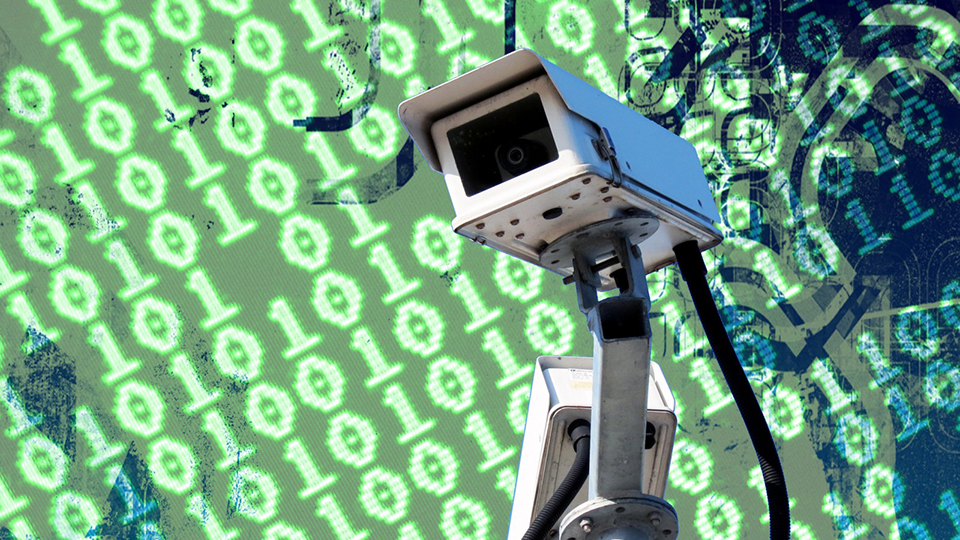The latest discoveries about NSA spying revealed that the agency has collected 27 terrabytes of information about cellphone locations to track its targets not only in cyberspace, but also real space. The Panopticon is real. It siphons billions of dollars each year from a federal budget in crisis. And it is watching you and your children.
Lost in the debate about NSA spying, however, have been the dozens of other federal agencies also complicit in Fourth Amendment abuses.
Leading the Charge: The FBI
The FBI is among the federal agencies leading the assault on the Constitution. The FBI runs its own intelligence databases, has long abused the very same sections of the PATRIOT Act for which the NSA has recently come under fire and has the further distinction of having infiltrated First Amendment-protected activist groups and religious institutions all over the country.
Nor are these new issues. Unfortunately, the FBI's abuses are well established: For at least a quarter century, the bureau deployed a series of domestic "counterintelligence programs" that were discovered by activists in the 1970s and then investigated by Congressional oversight committees. Summarized as a "sophisticated vigilante operation" in 1976 by the Senate, CoIntelPro presaged the recurrence of similar abuses under the Bush administration and continuing into the Obama administration.
In 2008, I sued the FBI to seek public disclosure of its secret policy authorizing undercover infiltration. Our FOIA case did force the bureau to disclose the document, but the FBI redacted the entire chapter on what it calls "undisclosed participation."
A bizarre - and widely overlooked - exchange in a 2010 Senate Judiciary Committee oversight hearing revealed what little we know. When asked by Senators under what legal standard the FBI Infiltrates activist groups, the then-director of the FBI assured them that “reasonable suspicion of criminal activity” was first required, only to repudiate his statement before the sun had set.
As it turns out, even reasonable suspicion of criminal activity is not required, as the FBI admitted in a letter sent to the Hill that evening, after the cameras and microphones were off. According to the FBI, any "proper purpose" can justify infiltrating an activist group, however untethered the means toward that purpose might become.
Congress: Years Late and Billions Short
After a decade of sitting on its hands and enabling the dangerous entrenchment of executive power at nearly every opportunity, Congress is finally beginning to pay attention. But even measures that purport to restrain the NSA’s dragnet spying settle for scratching at the surface.
The USA FREEDOM act was thoughtfully engineered by the authors of the PATRIOT act to restrain executive agencies including the NSA and FBI from abusing their approval of expanding powers over the past decade. Even their bill, however, fails to address most of the FBI’s recurring problems.
One measure, introduced by Rep. Rush Holt (D-NJ), would do more. Holt is not your average member of Congress. Having taught physics at Princeton (making him the only rocket scientist among his four hundred colleagues), he’s arguably the smartest member of the chamber. He’s also the former chair of the House Intelligence Committee, the successor to the Pike committee that in the 1970s famously investigated decades of FBI crimes.
Rep. Holt’s bill, the Surveillance State Repeal Act, would rescind the PATRIOT Act entirely, as well as the 2008 amendments to the Foreign Intelligence Surveillance Act. It is the only pending bill that would force the intelligence agencies to justify their powers from a pre-9/11 baseline, as they should.
Unfortunately, most members of Congress who talk about privacy have yet to walk their talk. And with leading Democrats carrying the Bush administration’s water now that President Obama is holding the glass, it will take continued collaboration across the aisle, along with creative public displays of dissent to rein in the surveillance state.
3 WAYS TO SHOW YOUR SUPPORT
- Log in to post comments


















